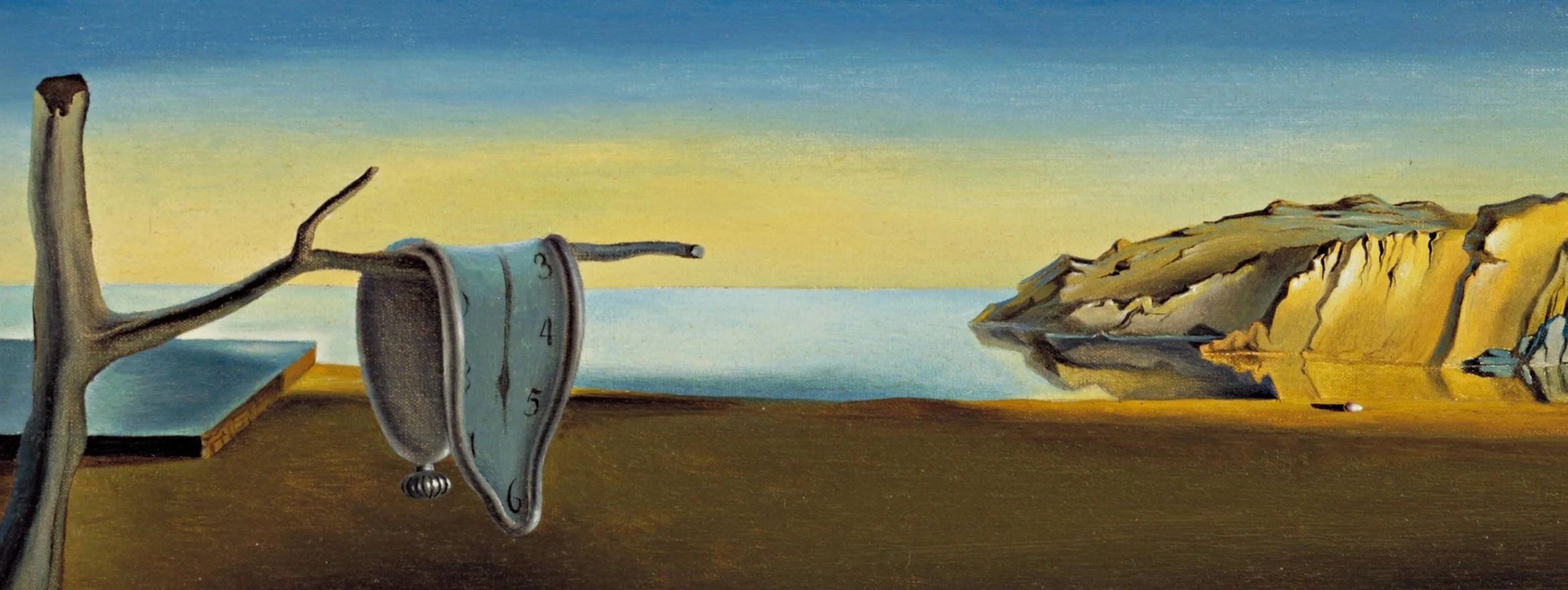the destructime.
destructime (noun): destruction + time = time as a source of destruction
"What then is time? If no one asks me, I know what it is. If I wish to explain it to him who asks, I do not know". Saint-Augustin in his Confessions left no heads unached with that statement. Put simply, if the past is, by definition, what is no longer, and the future what is not yet, then the only truth would reside in the present, the instant. However, this instant is elusive - as soon as we pronounce the word ‘present’, it is already the past. Thus, the 'instant' is and is not at the same time. As soon as the present time is created, it is instantaneously demolished. This paradox perfectly embodies time's destructive nature, turning time into the destructime.
“The Persistence of Memory” - Salvador Dalí, 1931
IN-DEPTH: How can time be considered a source of destruction?
In order to brandish your gloriously virile demolition jack-hammer and fracture time's essence, it is essential to understand two central Greek myths.
According to the Ancient Greeks, one night, Cronos savagely mutilates his father and seizes power. Later, he swallows his children out of fear that they will take the power he himself has stolen from his father. One day, his spouse Rhea, courageously decides to save one of them (the future Zeus) and gives Cronos a stone wrapped in swaddling clothes to eat instead. Later, Zeus dethrones his father and forces him to spit out his brothers and sisters, rebelling against their cannibal father and condemning him to the Tartarus.
Chronos symbolises time (“chronos” means time in greek), and him devouring the flesh of his children is far from devoid of meaning. Indeed, the flesh can be interepreted as the leib korper. The “leib korper” is a term used by continental philosophers to refer to the body as a symbol of all one has lived - for example, scars are the imprint of our experiences, turning our body into a sort of ‘musem of our life’. But ‘our life’ can be conceived as our experience of time - it is hard to imagine ‘our life’ without thinking of the past. Here, time destroys the leib korper, and therefore destroys our experience of time. Can you really remember all you have lived? Or does time cruelly crush your memory? Chronos later gave birth to chronology, a linear time, inviting you to count every second and every minute, powerlessly witnessing the destruction of each hour passed.
Greek mythology also offers another destructive vision of time through the character of Kairos. Often portrayed as a young man with a small patch of hair on his head, Kairos represents an ‘opportune moment concealed in each second's instant’. When he passes by, we are offered three options: either we do not see him, see him but do not act, or reach out and 'seize the instant by the hair’. Kairotic time is existentialist in the way it invites us to 'act our time' rather than pass it. However, the Kairos is as existentially creative as it is destructive. Indeed, it destroys the past and future by highlighting how all that truly is, is the instant alone.
